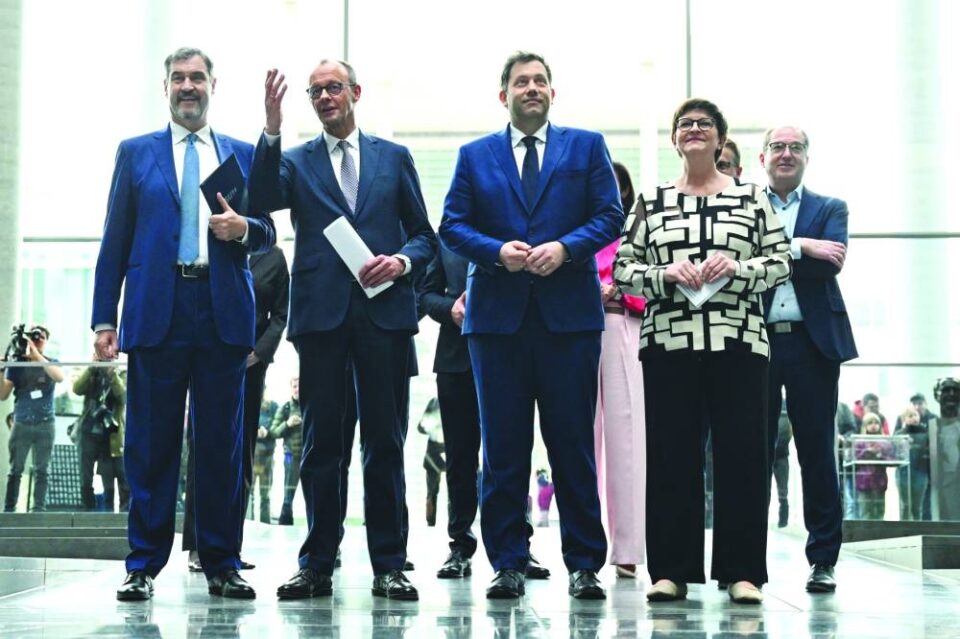Germany’s next leader, the conservative Friedrich Merz, vowed yesterday to “move the country forward again” by boosting the economy and defence as he presented a deal to launch his coalition government by early next month.Merz is set to take over as leader of Europe’s top economy just as US President Donald Trump has sparked global trade turmoil and raised deep fears about future transatlantic security ties.Asked at a press conference if he had a message for Trump, Merz said in English that the country would meet its defence obligations and rebuild its economic competitiveness.“Germany is back on track,” he added.Following the February election victory of his CDU/CSU alliance, Merz quickly struck a deal to forge a new government with the centre-left Social Democrats (SPD) of the now caretaker Chancellor Olaf Scholz.“The coalition agreement is a signal of a new beginning… for our country,” said Merz, whose party won the elections with 28.5% of the vote.In their 144-page coalition contract, the two big centrist parties pledged to “significantly” boost defence spending amid growing concerns about US commitment to European security under Trump.The parties also said Germany would continue to support Ukraine as the United States looks to encourage a deal to end the war started by Russia’s invasion over three years ago.“We will provide comprehensive support to Ukraine so that it can effectively defend itself against the Russian aggressor and assert itself in negotiations,” the agreement said.Presenting the deal, Merz pledged that Germany would “reform and invest to keep Germany stable, make it safer and make it economically stronger again”, adding that “Europe can rely on Germany”.He also pledged that his government would “largely end irregular migration” and promised a “repatriation offensive” after an election campaign marked by a bitter debate on migration and a surge in support for the far-right AfD.The swift conclusion of the talks — a process that has in past years dragged on for months in Germany — is the result of “extraordinary external pressure”, said political scientist Wolfgang Schroeder of Kassel University.“The pressure is coming from Trump, the pressure is coming from the AfD, the pressure is coming from (Merz’s) own ranks,” he told news channel NTV.The far-right Alternative for Germany (AfD) came second in February’s election with a record 20% of the vote.Support for the party has since continued to rise, with one survey by the Ipsos polling firm released Wednesday rating it as Germany’s most popular party on 25% — ahead of the CDU/CSU on 24%.Renate Koecher, head of the Allensbach Institute, said the rise of the AfD had been fuelled by Germany’s political paralysis at a time of acute global and domestic crises.“Problems are growing but at the same time we have no government capable of acting,” Koecher told the Rheinische Post newspaper.“The economy is facing increasing difficulties and decisions are being made in the US that Europe, with Germany in a leading role, should be able to respond to quickly,” she said.“And in this situation, we have a power vacuum. This fuels the unease among the population.”

previous post